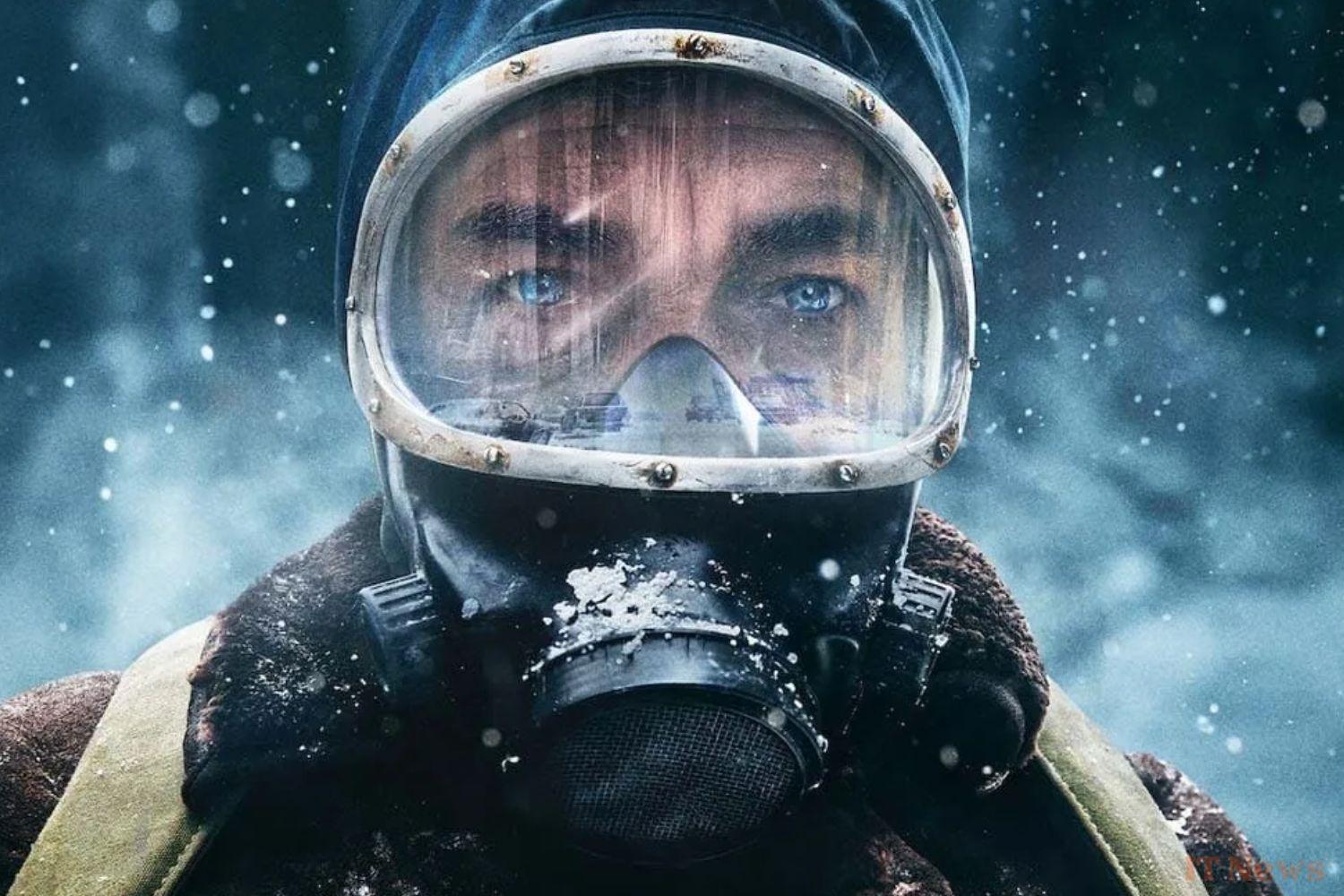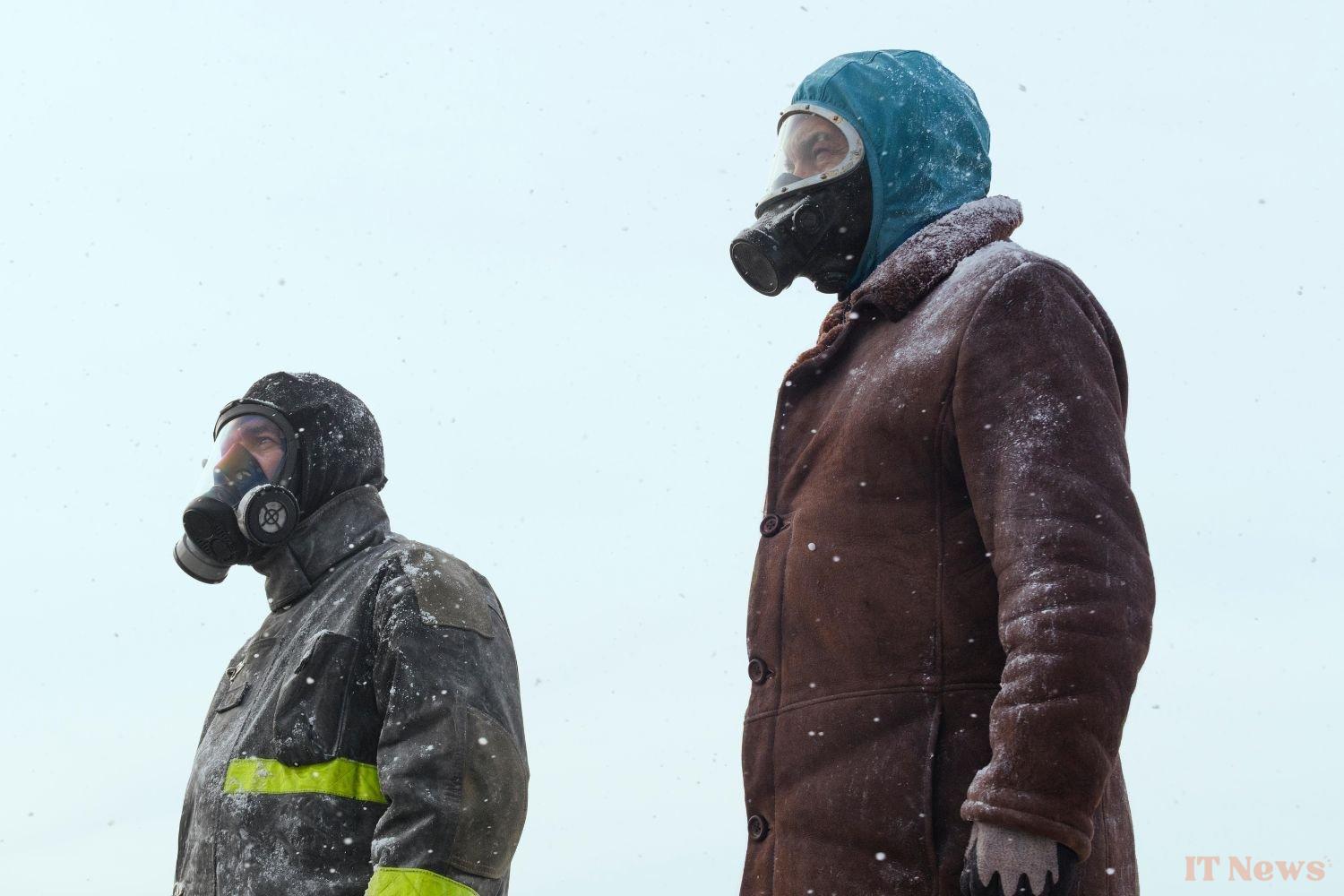The problem with season 2 of The Last of Us is that you have to wait a week between each episode. That's six days of counting your toes (nine) and contemplating the passage of time. Or vice versa. Fortunately, for those whose desire for post-apocalyptic stories is far too strong—and we understand why—we may have a solution. To fill the little space left by Pedro Pascal for productions without Pedro Pascal, Netflix unveils its own survivalist series, The Eternaut.
Adapted from the Argentinian comic strip of the same name, written by Héctor Oesterheld and drawn (at first) by Francisco Solano López in the 1950s, The Eternaut tells the story of a group of survivors after a terrible and mysterious deadly snowstorm suddenly hits the world, causing millions of deaths. Sheltered in the house of one of his friends, Juan Salvo (Ricardo Darín) must face the outdoors if he wants to find his missing daughter. But the snow and looters may not be the only threats; under the blizzard, strange creatures prowl…
Without knowing the original medium, we were intrigued by this Argentinian series mixing science fiction and survivalism with a winter setting like Snowpiercer. The first three episodes made available to us, out of the six that make up the (first?) season of the show, did not disappoint, addressing a lot of things that we will come back to, without the budget of an American production.
This point seemed essential to us to address since it is obvious that L’Éternaute cannot compete with flagships of the genre in terms of technicality. Some green screens are blatant, the casting is not always right, and the savings in means are visible here and there. However, the series can boast of being fully aware of its flaws, and even using them to its advantage, so that these deficits become almost invisible over time. If you don't ask for the moon, you might have a chance to fall back into the stars.
Respect for the genre
You can't blame a story for replaying a few classics when it's inspired by a model published in the 1950s. It must also be recognized that L'Éternaute is rather solid when it comes to flirting on the line between stereotype and respect for the genre, offering us what we expect, not necessarily in the way we expect it.
By this we mean that the series knows what is important to take care of when adapting a survivalist science fiction story, starting with its atmosphere. Bruno Stagnaro's show will surround itself with mystery surrounding the events, so that we know little more than the characters, simply to effectively pique our curiosity. The end-of-the-world atmosphere is respected, and we have as many notes of hope as there is reason to believe that everything will turn for the worse at some point. We can guess what happens next based on the experience of previous productions, but without ever being certain of the when, the who, the how, and the why.
The other essential point is obviously the characters. We can't really say that we've grown attached to all of them yet, and not all of them have had their chance to shine in these three episodes, however the gallery is diverse enough to give each one a role. Roles are defined and future conflicts are outlined by the urgency of the situation. At what point will the need for control turn into totalitarianism? At what point will personal interests break friendships? It is regrettable that women are, in this part, confined to a maternal role of empathy and benevolence while men are the decision-makers, but we are hopeful that things will change later, the latent potential being present. As is customary in this kind of intrigue, the worst enemy of the human being remains himself.
The Internet User has his cards to play
Beyond the promises kept in terms of substance, we are also quite pleasantly surprised by the form. After a few minutes of the first episode, we felt that the show could have slipped into a contained torpor in terms of rhythm, letting each sequence last excessively to gain time. This is not the case and we are satisfied to see that the story controls its rhythm, not hesitating to play for time or suddenly push the accelerator. We never enter into this monotone fatal to many series and the three episodes passed like a letter in the post with maintained interest and a desire to discover the sequel. Well, the average length of 40-45 minutes also helps.
L'Éternaute manages to make its world seem believable, notably by sometimes presenting us with secondary roles before the catastrophe, only to then confront us with the consequences it had on them. The passage of time has a real impact on relationships, decision-making, and our view of the nice neighbor who suddenly becomes an amoral being. And always this question specific to the survivalist genre: what would we have done in so-and-so's place? We have understandable, defensible, or reprehensible choices. There is a form of realism within this imaginary situation. The human remains the center of the subject, as the tradition of the genre demands.
It is still too early to know if L'Éternaute will manage to steer his boat to safety without crashing into a rock in the process. Nevertheless, as it stands, we are faced with a series that has potential and that has managed to intrigue us with its stakes, for the moment, well in place. The slap may not be strong enough to place it in the top basket, especially with an artistic direction that is a little lacking in resources, but for lovers of the genre, there is no reason to deny itself the pleasure. A nice proposition to see on Netflix.





0 Comments